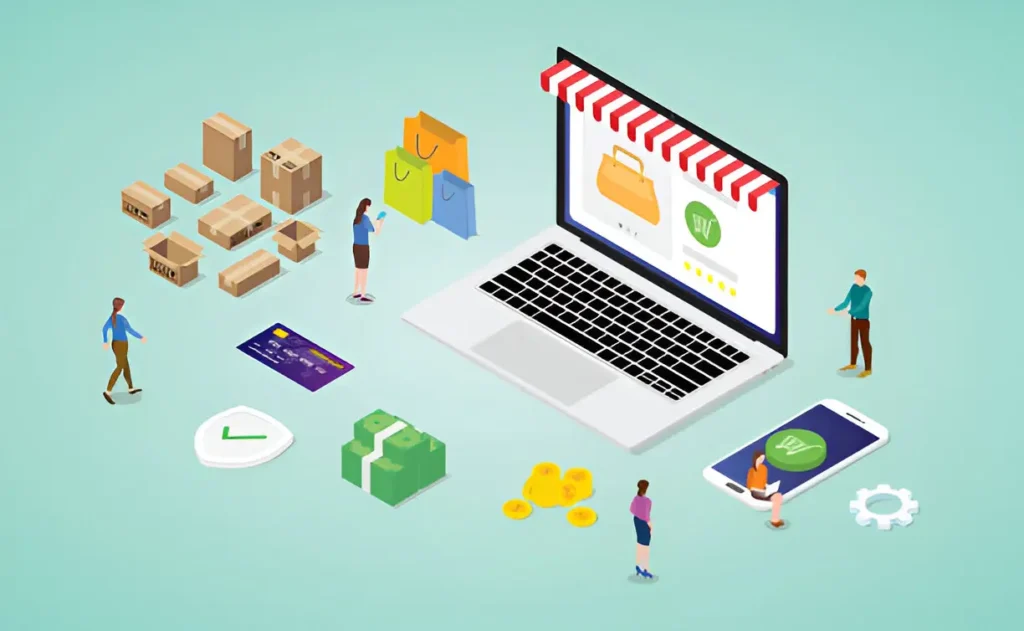Your e-commerce business is running smoothly. Orders are consistent, customers are happy, and you have a solid grasp on your day-to-day operations. This stability is a significant achievement, but it often brings a new, critical question to the forefront: Is it time to scale? Expanding your business is a major step that can lead to greater revenue and market share. However, making the move too soon or without a clear plan can jeopardize the success you have already built.
This guide will explore the key signs that indicate your business is ready for growth. We will also cover practical strategies for scaling effectively and the potential challenges to anticipate. Preparing for this next phase is essential for a successful transition from a stable small business to a larger, more influential player in the market.
Recognizing the Right Time to Scale
Timing is everything when it comes to expansion. Acting prematurely can strain your resources, while waiting too long can mean missing valuable opportunities. Look for these indicators to determine if your business is prepared for the next level.
Consistent Profitability and Strong Cash Flow
Before you can think about growing, your financial health must be solid. Occasional sales spikes are great, but sustained profitability is a much clearer sign of readiness. You should have a predictable revenue stream and a healthy cash flow that can cover your current expenses with a comfortable buffer. This financial stability will be the foundation that supports the initial costs of scaling, such as hiring new staff or investing in more inventory.
Overwhelming Demand
Are you consistently struggling to keep up with orders? If your team is working at maximum capacity and you’re still having trouble fulfilling demand, it’s a strong signal that you have outgrown your current operations. This includes selling out of popular products quickly or having to create waiting lists for customers. High demand shows that your brand and products have found a receptive market, one that is likely large enough to support a bigger business.
Positive Customer Feedback and High Engagement
Happy customers are the bedrock of any successful business. When you consistently receive positive reviews and see high levels of customer engagement, it shows that your brand resonates with its target audience. Satisfied customers are more likely to become repeat buyers and recommend your store to others, creating organic growth that can be amplified through scaling. This brand loyalty is a valuable asset as you expand into new markets or product lines.
Strategic Approaches to Scaling Your Business
Once you have determined that the time is right, you need a clear strategy. Scaling isn’t just about doing more of the same; it’s about building systems and processes that can handle increased complexity and volume efficiently.
Automate and Outsource Key Processes
As your business grows, you can no longer manage every task manually. Identify repetitive, time-consuming activities and find ways to automate them. This could include using software for email marketing, inventory management, or customer service chatbots. Additionally, consider outsourcing tasks that are outside of your core expertise. Functions like accounting, digital marketing, or even complex logistics, such as arranging international freight or handling customs for shipping to Puerto Rico, can often be managed more effectively by specialized third-party providers.
Expand Your Product Offerings
Introducing new products is a natural way to grow. Analyze your sales data to understand what your customers love and identify related products they might also be interested in. You could expand existing product lines with new variations or launch entirely new categories that appeal to your current customer base. Conduct market research to validate demand before investing heavily in new inventory.
Diversify Your Sales Channels
Relying on a single sales channel can be risky. If your entire business is built on your website, consider expanding to other platforms. You will, however, want to ensure your website is in a strong position to handle a large increase in referral traffic and heightened online sales demand. Selling on major online marketplaces can expose your products to a massive new audience. Similarly, exploring social commerce features on platforms like Instagram or Facebook can create new revenue streams. Diversification protects your business and multiplies your opportunities for customer acquisition.
Preparing for Potential Challenges
Scaling is not without its difficulties. Proactive planning can help you navigate these common hurdles.
Maintaining Brand Consistency
As you grow, it can be challenging to maintain the unique brand identity and customer experience that made you successful in the first place. Document your brand guidelines and ensure that all new team members understand your company’s mission and values.
Managing Increased Operational Complexity
More orders, more customers, and more products mean more complexity. Your supply chain will be tested, and customer service demands will increase. Invest in scalable infrastructure, from your ecommerce platform to your fulfillment process, to ensure you can handle the growth without sacrificing quality.
Meta Description
Ready to scale your ecommerce business? Learn the key signs it’s time to grow and discover effective strategies for expansion while avoiding common pitfalls.
Also Read-Vidwud AI: Transforming Online Body Swap and Talking Photo Technology



